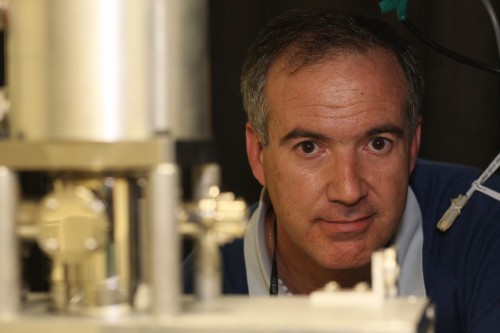Prof. Nir Tesler of the Technion developed an innovative technology that improves the efficiency of organic photovoltaic cells by about 50%. The technology was registered as a patent.

Nano Israel conference website – 22-23/2/2016
Organic photovoltaic cells convert solar energy into electric current using organic molecules, and one of their advantages over the 'traditional' cells made of silicon is
The possibility of installing them on flexible sheets. These sheets are spread over roofs and buildings, and the energy conversion takes place inside.
Despite the advantages of the organic cells, their conversion potential is not fully exploited. "In the current study recently published in the "Journal of Applied Physics" magazine, we discovered that the usefulness of an organic photovoltaic cell and its electricity output are limited by structural aspects," explains Prof. Tessler, a faculty member in the Faculty of Electrical Engineering and head of the Sara and Moshe Center for Nanoelectronics Zisapel at the Technion. "We proved that the limitations are not related to the material but to the structure, and as a result we developed a kind of addition to the existing systems, which improves the efficiency of converting solar energy into electrical power in the cell from 10% to 15% and adds 0.2 volts to the cell voltage."
The aforementioned development is based on increasing the energy gap between the electrodes by changing their fixation position in the system. The result: the voltage increases, and consequently the power of the system. "This improvement is very significant for the relevant industry, and it was achieved thanks to the fact that while most researchers in the field focus on developing new materials, we focused on a structural change of the device. It seems as if the laws of physics have been challenged with the help of engineering." According to Prof. Tessler, development of a prototype of the system in the Technion laboratories will be completed within a year at the most.
The Sarah and Moshe Zisafel Center for Nanoelectronics, headed by Professor Tessler, was officially inaugurated in 2007. Thanks to the Zisafel family's donation, and in collaboration with the Russell Berry Institute for Research in Nanotechnology at the Technion, the center was equipped with one of the most advanced research and development infrastructures in the world today. The center serves not only technical units but also research and industrial entities outside the Technion and invites industry entities to use the advanced systems available to it. Today, several business companies are already operating in the center with various features of cooperation.
The innovative research will be presented at the Nano Israel 2016 conference, which will be held on February 23-22 at Tel Aviv University.
